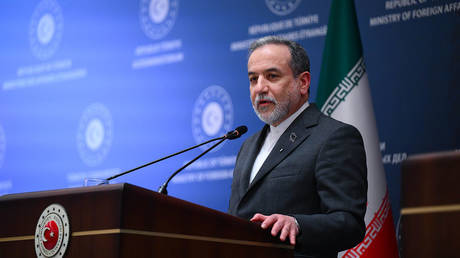
The bureau said a rise in ransomware attacks targeting farming co-ops could disrupt “the entire food chain”
The top US law enforcement agency has warned of increased cyber attacks on agricultural cooperatives, saying hackers could target large-scale farms and potentially impact the world’s food supply.
The FBI’s Cyber Division issued a notice to private industry earlier this week, pointing to a growing number of ransomware attacks on farming co-ops throughout the fall 2021 harvest and the early months of 2022.
“Ransomware actors may be more likely to attack agricultural cooperatives during critical planting and harvest seasons, disrupting operations, causing financial loss, and negatively impacting the food supply chain,” it said, adding that such breaches could affect the planting season “by disrupting the supply of seeds and fertilizer.”
The bureau went on to cite several recent cases, including a month-long period late last year in which six major grain cooperatives were hit with a variety of ransomware attacks, as well as a “multi-state grain company” which experienced a similar hack in March. It noted the widespread effects such attacks could have on the global food supply given the importance of grain for both people and livestock.
“A significant disruption of grain production could impact the entire food chain, since grain is not only consumed by humans but also used for animal feed,” it said. “In addition, a significant disruption of grain and corn production could impact commodities trading and stocks.”
Ransomware is a form of malicious software used to encrypt and block access to a victim’s data until a ‘ransom’ is paid to the attackers, who often threaten to publish or destroy files if no payment is made.
The FBI warning comes amid concerns of food shortages in some regions due to the ongoing conflict in Ukraine, a major agricultural exporter. Russia, which sent troops into the neighboring state earlier this year, is also a significant exporter of wheat and other staple crops, with the two nations commonly described as regional ‘breadbaskets’. A flurry of Western economic sanctions on Moscow is likely to worsen the problem, moreover, as a growing number of banking and financial restrictions create new barriers for world trade.
READ MORE: FBI pins massive crypto heist on North Korea
Russia attacked the neighboring state in late February, following Ukraine’s failure to implement the terms of the Minsk agreements, first signed in 2014, and Moscow’s eventual recognition of the Donbass republics of Donetsk and Lugansk. The German and French brokered protocols were designed to give the breakaway regions special status within the Ukrainian state.
The Kremlin has since demanded that Ukraine officially declare itself a neutral country that will never join the US-led NATO military bloc. Kiev insists the Russian offensive was completely unprovoked and has denied claims it was planning to retake the two republics by force.




